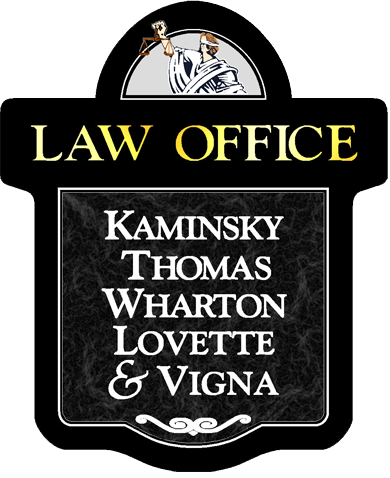
One of everyone’s basic legal needs is a solid estate plan. Whether a simple plan involving only a will, power of attorney, and living will or a complex plan requiring guardianships and trusts our attorneys will be able to determine the plan that best suits your needs. When our firm creates an estate plan, we look at not only how our client’s assets will be transferred after his or her death, but also how his affairs will be managed if he becomes incapacitated. Because every individual’s needs are different, the work we do includes understanding thoroughly our clients’ unique situation. For this reason, we emphasize that simple, “one size fits all” Wills, while easy to understand and prepare may not be appropriate. We also incorporate a variety of planning techniques including trusts of various kinds as well as living wills, powers of attorney, and other similar instruments to create a custom tailored estate plan that will accomplish your wishes most efficiently and effectively.
If you have an appointment with an attorney at Kaminsky, Thomas, Wharton, Lovette & Vigna regarding Estate Planning, please download and complete the Estate Planning Checklist so that you have all the information that will be necessary at the initial consultation.
If you do nothing else to take care of your legal affairs, you should get a Will. If you don’t make a Will before your death, Pennsylvania law will determine who gets your property (and it may not go where you want it to go). Moreover, a judge may decide who will raise your children. If you create your own Will, you will be the one making these very important decisions.
A will is a written instrument containing directions for how the property of the person making the will shall be divided on his or her death. Generally, the Will must be signed by the testator and should be signed by at least two witnesses who have no interest in the property passing under it.
A person’s age, marital status, and financial holdings weigh heavily in the decision to draft a Will. In general, every adult should think about making a will, and the need grows as your assets and family ties increase. Wills are especially crucial for parents with children who are minors, since you can name a guardian in a Will and make arrangements for financial support of the children even past the age of 18.
The attorneys at Kaminsky, Thomas, Wharton, Lovette & Vigna will assist you in creating a properly executed Will, which conveys your wishes clearly and succinctly so that the persons you wish to receive your property upon your death actually receive it. The Will may be created as a standalone Will document or our firm will assist in the creation an overall Estate Plan, in which the Will will act in combination with other estate planning mechanisms to ensure that the maximum amount of your estate possible goes to your beneficiaries.
Administration of estates involves collection of assets, payment of obligations such as debts and expenses and death tax preparation (federal and state) and filing, and distribution of property to heirs and beneficiaries.
If you are involved with a person who has died, make sure that their home is secure and nothing is lost or destroyed. In Pennsylvania other than a spouse, no one can enter a safe deposit box without arranging an inventory for the Pennsylvania Department of Revenue. Shortly after the funeral, contact an attorney at Kaminsky, Thomas, Wharton & Lovette to discuss the decedent’s matters and estate.
Our attorneys will provide advice, determine whether administration will be required and explain what procedures will be involved. If there is a Last Will, the person named as executor should protect the original of it and give it to the attorney at the first meeting.
At the beginning, all assets of the estate, including personal possessions and real estate, are inventoried and sometimes physically gathered. All of the beneficiaries (if there is a will) or heirs (if there is no will) are located. They are told that they were named in the will or have a legal right to receive an inheritance. Funeral expenses, debts, state and federal taxes are paid, and necessary tax returns are filed.
Sometimes administration may involve the short-term management of a business or stock in a corporation. There could also be sale of real estate, which was owned by the deceased. At the conclusion of the administration period, a final accounting of all assets can be presented for approval to the county court or, in appropriate situations, to the beneficiaries for their informal approval and release. After approval, distribution of the balance of assets is accomplished.
An estate is administered by a personal representative. If there is a will, the personal representative named to serve is called the “executor.” If there is no will or if the executor cannot serve, the person who does serve is referred to as the “administrator.” The Register of Wills makes the appointment.
The personal representative works with the attorney in complying with necessary legal requirements.
If you have an appointment with an attorney at Kaminsky, Thomas, Wharton, Lovette & Vigna regarding Estate Administration, please download and complete the Probate Questionnaire so that you have all the information that will be necessary at the initial consultation.
